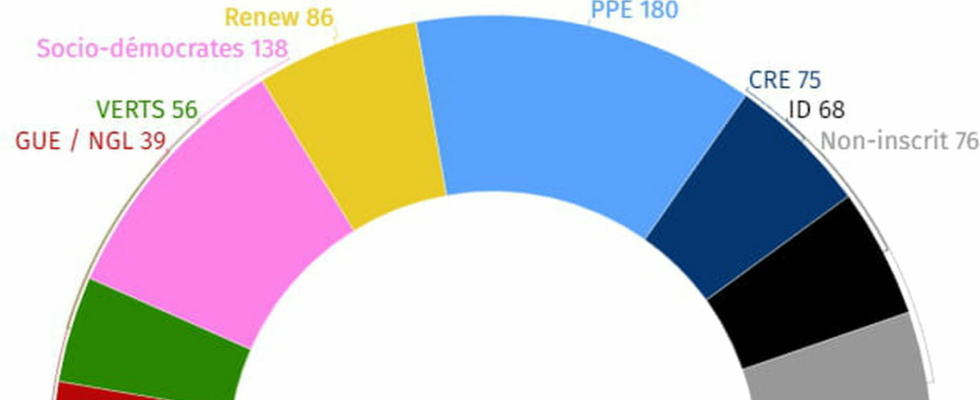What will be the political majority in the European Parliament for the next five years? The results of these European elections could be marked by a historic progression of the far right.
Find the results of the Europeans at home with our search engine
Will the European Union have even more far-right or nationalist elected officials for the 2024-2029 term? The extent of the push by sovereignist elected officials, fiercely opposed to the current form of European political union, will be one of the lessons of the results of these elections this Sunday. We will have to wait until 8 p.m. this evening to have the first estimates, but pollsters provided numerous opinion studies during the campaign suggesting an unprecedented wave of the extreme right in several countries of the European Union.
Enough for nationalist parties to have a majority or the means to impose a political balance of power? The polls – which were published on Friday June 7 at the latest, before the start of the reserve period, and which are only a snapshot of opinion at a given moment which can be contradicted – did not predict such a surge strong. By aggregating all the polls by country in the European Union, opinion studies rather gave around 140 to 180 seats to the far right, out of a total of 720 elected officials. These deputies are those who should make up the groups of nationalists (ID), Eurosceptic conservatives (ECR) and part of the non-registered, who do not wish to merge.
In reality, the polls carried out this week rather gave the lead to the European group of the traditional right (PPE) with around 180 seats in which LR sits, ahead of the group of social democrats (S&D) with around 140 seats, in which seats the PS, and the group of liberal democrats (Renew) with around 85 seats in which Renaissance sits. The right-wing and liberal bloc was given by these polls as the group with the relative majority.
For completeness, let us recall the seven groups in the European Parliament, which are from most to least important:
- The European People’s Party, where the Republicans sit.
- The social democratic group, where the elected representatives of the socialist left sit.
- The centrist group Renew Europe, where the presidential majority sits.
- Environmentalists, where the Europe-Ecology-the Greens party sits.
- Identity Democracy (ID), which counts the National Rally in its ranks
- The European Conservatives and Reformists (CRE), Reconquest group.
- The radical left group, where France Insoumise is based.
The left and ecologists’ bloc was also shown by the polls to be able to constitute a larger group than that of the extreme right. However, the progress of nationalist sovereignists could be historic, if the polls are confirmed this Sunday evening. All the results of the 2024 European elections, in France and in Europe, can be consulted on the Linternaute website, in particular thanks to our major live broadcast dedicated to the European elections.
